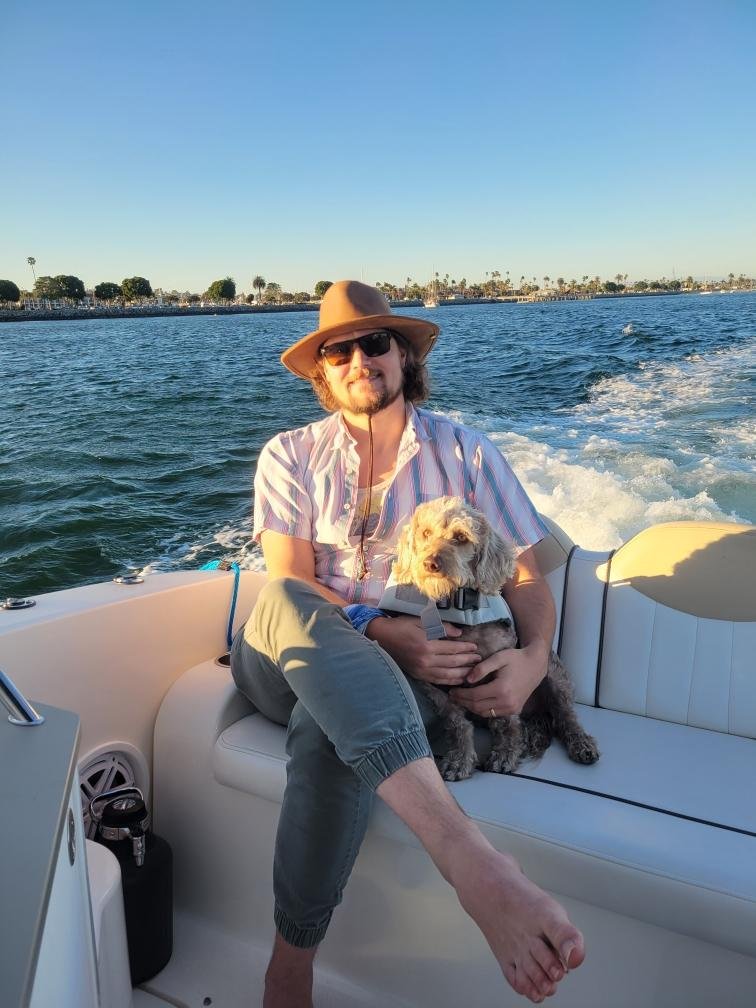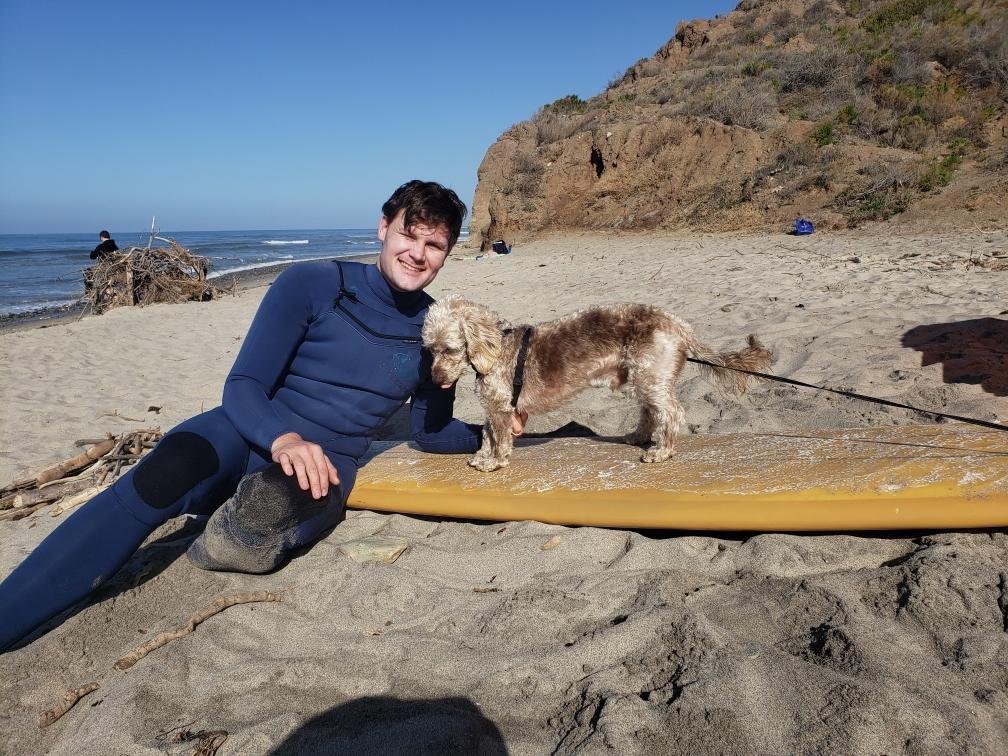What is your background and what are you working on at the moment?
I went to UC Santa Cruz where I got my undergraduate degree in physics and computer science. My main interest was fluid dynamics which involves a lot of computer programming, hence the combination. After graduation, I got a job as a software engineer at the Stanford Linear Accelerator Center working with control systems. Though particle physics wasn’t my main interest it was a pretty sweet gig where I got to tinker and learn a lot about both the science and engineering aspects. Eventually, I realized that I was more interested in ocean rather than particle physics, so I decided to go back to graduate school. Now I’m in my 5th year in the Applied Ocean Sciences program working with Bruce Cornuelle and Drew Lucas on underwater acoustics. My main research focus is ocean acoustic tomography which is all about how we can remotely sense ocean variables such as temperature or salinity, using sound energy. There is a long history of this research at Scripps dating back all the way to Walter Munk sending very powerful sound signals across the earth traveling through multiple ocean basins and inferring information about the ocean on a basin scale. I, however, look at smaller-scale oceanography, 10 meters or less, typically referred to as “fine structure”. The upper part of the ocean is very inhomogeneous due to its proximity to the surface. There are temperature and salinity sharp gradients due to the layering and mixing in the ocean. These features affect the sound speed of water which in turn affects the acoustic propagation in the ocean and give rise to various strange patterns in the received acoustic transmissions, thus my work involves a lot of signal processing and some acoustic modeling too.
What keeps you excited and interested in working in the field of oceanography?
I get really excited about the discovery part of my work. Scripps is such a cool place where many people are truly able to got out to sea and collect data and discover something new. That allows us to really become the experts at what we do, especially at the graduate school level. No one else is looking at the problems to the degree that you’ll look at them, sometimes not even your advisors because they are busy with their own world, and as a graduate student doing most of the groundwork, you’re kind of on the very edge of it all, and that gives my work purpose.
When you were a kid, did you expect to be a scientist?
No, I don't think so. I was thinking I'd be an inventor like Thomas Edison whom I really admired. I spent a lot of time swimming as a kid which can be rather mundane mentally, so I was always doing thought experiments about how to design things like submersibles or floating skateboards. Though I guess that is what I ended up doing, a bit of ping-pong between engineering and science where the lines definitely get blurred at times, it is kind of like being an inventor.
Were there any particular things from your childhood that drew you to study the ocean?
As a kid, I lived 15 minutes away from the beach and I grew up a surfer, I did beach camp in the summer, and I was a junior lifeguard. I think I’ve always been enamored with the ocean. Sometimes I wonder if it was the right choice to have that be my career, you know how they say one should separate your career and your hobbies, but I also feel very privileged to be able to surf every day here. I work from home most days and it does drive me a little bit crazy at times. I definitely feel like getting in the ocean centers me, so I have to come into campus every once in a while.
What skills or abilities do you think are useful when going into oceanography?
I think that a strong math and science background will serve you well, a fundamental understanding of physics helps a lot. But you also need to be a bit of a self-starter. Your advisors are a resource and there are a lot of helping hands around, butyou have to know how to reach out for help and use the available resources. For my path through graduate school, I’ve also had good use of more practical skills like knowing how to solder, and for example, I work on cars. Those types of skills definitely have helped me fix things that break while at sea. A decent understanding of computer systems that I gathered in my previous degree and work has also been useful, but I don’t think it’s a requirement.
What does a typical workday look like for you?
I'm pretty much a nine-to-five kind of guy. Sometimes it is longer and sometimes it’s shorter, but I like trying to stick to a schedule to know that I’m putting in the hours. That was actually the best advice I got as an undergraduate, someone told me to “treat school like a job”. It might be a strange job, but that is the best way to keep going. Graduate school is such a marathon and sometimes you’re deep in the weeds questioning if you’re even making any progress, but if you put in the hours, you can at least trust you’re doing the work that will eventually accumulate to a breakthrough of some sort.
What drew you to study at Scripps?
Many things, beyond it having a reputation for being a great institution where I knew I’d find something fun to work with,it was also close to my support system and family which has actually been really important during my graduate school experience. And yeah, having the beach and the surf right outside your office door isn’t too bad either.
Is there a particular scientist/person/something that inspires you?
I think I’d have to answer Ernest Shackleton. Ever since I read his book “South” I’ve been amazed at his dogged determination to survive and save his crew when their ship got stuck in the Antarctic sea ice for over a year. That refusal to give up despite extreme circumstances puts me put things in perspective when I feel like I’m having a hard time with my work. I guess they named their ship “Endurance” for a good reason…
Do you have a fun fact that you'd like to share that not everyone knows about you?
The lab I used to work for was a Slovenian-owned company, or rather they were contractors for the lab, but working for them I got to go live in Slovenia for 3 months. That was a really great time and it’s a very beautiful country. They have a tiny bit of coastline along the Mediterranean and lots of wonderful mountains. The language is very complex, but luckily most people speak some English and the people are very friendly.
Written by Kerstin Bergentz




